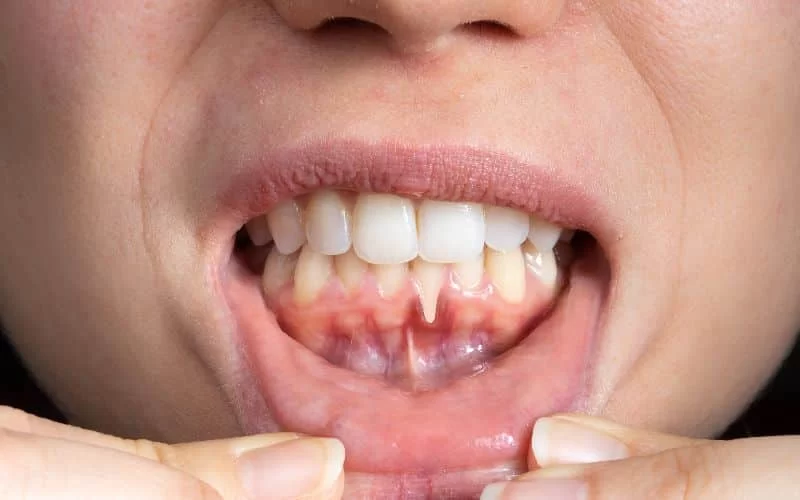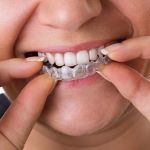
- Importance-of-Oral-Hygiene-During-Illness
- Challenges-in-Maintaining-Oral-Hygiene-During-Illness
- Effective-Oral-Care-Strategies-During-Illness-and-Recovery
- Role-of-Diet-and-Hydration-in-Oral-Health
- Professional-Care-and-Resources-for-Oral-Hygiene
1. Understanding the Importance of Oral Hygiene During Illness
When the body is fighting illness or recovering from medical treatments, maintaining oral hygiene often becomes a secondary concern. However, it is crucial to recognize that the state of your oral health directly impacts your overall wellbeing during these vulnerable phases. Poor oral hygiene can lead to complications such as infections, mouth sores, or increased inflammation, which may further weaken the immune system.
Illness can disrupt saliva production, alter eating habits, and reduce motivation for regular oral care, all of which contribute to increased risk of dental issues. This is why carefully maintaining oral hygiene during illness and recovery is not just about fresh breath or a clean mouth—it supports the healing process and prevents additional health setbacks.
1.1 How Illness Affects Oral Health
Different illnesses, particularly respiratory infections, flu, or conditions that require medications like antibiotics or chemotherapy, can reduce saliva flow, making the mouth dry. Dry mouth (xerostomia) increases the risk of cavities and gum disease because saliva plays a key role in neutralizing acids and washing away bacteria.
Moreover, symptoms such as nausea and vomiting, common in many illnesses, expose teeth to stomach acids, accelerating enamel erosion. Understanding these impacts helps in tailoring oral hygiene routines specifically suited for illness or recovery phases.
2. Common Challenges in Maintaining Oral Hygiene During Illness
Maintaining oral hygiene while sick presents unique obstacles that many people underestimate. Fatigue, reduced manual dexterity, mouth sensitivity, and altered taste sensations can all discourage regular brushing and flossing. For instance, a recovering patient may find the act of brushing painful or exhausting, leading to skipped sessions.
Additionally, certain medications cause dry mouth or unpleasant tastes, further complicating oral care. Even drinking water regularly can feel challenging during some illnesses, aggravating oral dryness.
2.1 Real-Life Scenario: Jane’s Experience with Flu and Oral Care
Jane, a graphic designer, experienced severe flu accompanied by persistent mouth dryness and sore gums. Initially, she avoided brushing because it irritated her gums. However, after consulting with a dental professional, she learned to switch to a soft-bristle toothbrush and use a mild fluoride toothpaste, which improved her comfort and oral health during her recovery. Jane’s case highlights how tailored oral hygiene methods can overcome illness-related challenges effectively.
3. Effective Oral Care Strategies During Illness and Recovery
To maintain oral hygiene during illness or recovery, it’s important to adopt gentle but consistent practices tailored to your condition. Here are detailed strategies that ensure your mouth stays healthy without adding strain:
3.1 Choosing the Right Tools
Use a soft-bristled toothbrush to avoid irritating sensitive gums. Electric toothbrushes with gentle modes can also be helpful if manual brushing is tiring. Consider fluoride toothpaste to protect enamel weakened by illness-related factors.
3.2 Modified Brushing and Flossing Techniques
If brushing seems difficult, break the routine into shorter sessions throughout the day. Rinse your mouth with water or an alcohol-free antimicrobial mouthwash if brushing is temporarily unbearable. Floss gently to remove plaque but avoid causing bleeding or pain.
3.3 Mouth Moisturizing Practices
To counteract dry mouth, sip water frequently and use saliva substitutes or oral gels recommended by healthcare providers. Chewing sugar-free gum can stimulate saliva production, aiding natural oral cleansing.
3.4 Addressing Nausea and Sensitivity
For patients dealing with nausea, brushing with mild-flavored toothpaste and rinsing with baking soda solutions can help neutralize acids and soothe the mouth. Avoid strong mint or citrus flavors that may worsen discomfort.
4. The Role of Diet and Hydration in Oral Health During Recovery
Nutrition and hydration play a vital role in maintaining oral health, especially when the body is healing. Balanced intake of vitamins A, C, and D supports gum health and tissue repair. Avoiding sugary or acidic foods helps prevent further enamel damage and bacterial growth.
Drinking plenty of water flushes out food particles and bacteria, maintaining a cleaner oral environment. Warm herbal teas (without caffeine or sugar) can also soothe the mouth and provide hydration.
4.1 Case Study: Recovering from Surgery with Proper Oral Diet
Mark, after undergoing jaw surgery, was advised to consume soft, non-irritating foods rich in nutrients. Following this plan, combined with diligent oral hygiene practices, he experienced faster healing and reduced risk of infection, proving that diet and oral care go hand in hand during recovery.
5. When to Seek Professional Care and Additional Resources
While home care is essential, some oral issues require professional attention, especially during illness or recovery. Persistent mouth sores, bleeding gums, unusual dryness, or signs of infection should prompt a dental consultation.
Our site, Dentistry Toothtruth, offers expert advice, the latest products for sensitive oral care, and trusted professional services tailored to patients managing health challenges. Exploring these resources can equip you with the best tools and guidance to maintain oral hygiene effectively during difficult times.
5.1 Building a Supportive Oral Hygiene Routine
Combining personalized home care with professional checkups ensures that oral hygiene contributes positively to overall health. Being proactive, even in small steps, helps prevent complications and supports a smoother recovery journey.







 Family Orthodontics - Peachtree City4.0 (134 review)
Family Orthodontics - Peachtree City4.0 (134 review) Community Health Care Hilltop Family Dental Clinic3.0 (188 review)
Community Health Care Hilltop Family Dental Clinic3.0 (188 review) Wai Kahala Dentistry LLC5.0 (43 review)
Wai Kahala Dentistry LLC5.0 (43 review) Gentle Dental Service4.0 (113 review)
Gentle Dental Service4.0 (113 review) Little Big Smiles Pediatric Dentistry of Fort Myers5.0 (130 review)
Little Big Smiles Pediatric Dentistry of Fort Myers5.0 (130 review) Brinton Family Dentistry4.0 (469 review)
Brinton Family Dentistry4.0 (469 review) The Importance of Oral Health Education During Pregnancy for a Healthy Pregnancy
The Importance of Oral Health Education During Pregnancy for a Healthy Pregnancy Best Tips for Brushing Your Teeth Properly for Healthy Gums: Essential Techniques for Oral Health
Best Tips for Brushing Your Teeth Properly for Healthy Gums: Essential Techniques for Oral Health Why Skipping Dental Checkups Can Lead to Bigger Oral Health Problems
Why Skipping Dental Checkups Can Lead to Bigger Oral Health Problems Advantages of Porcelain Dental Restorations
Advantages of Porcelain Dental Restorations How Can Diabetes Cause Tooth and Gum Problems? Preventing and Managing Oral Health Issues
How Can Diabetes Cause Tooth and Gum Problems? Preventing and Managing Oral Health Issues Healthy Habits for Promoting Good Oral Health and Hygiene: Tips for a Healthy Smile
Healthy Habits for Promoting Good Oral Health and Hygiene: Tips for a Healthy Smile